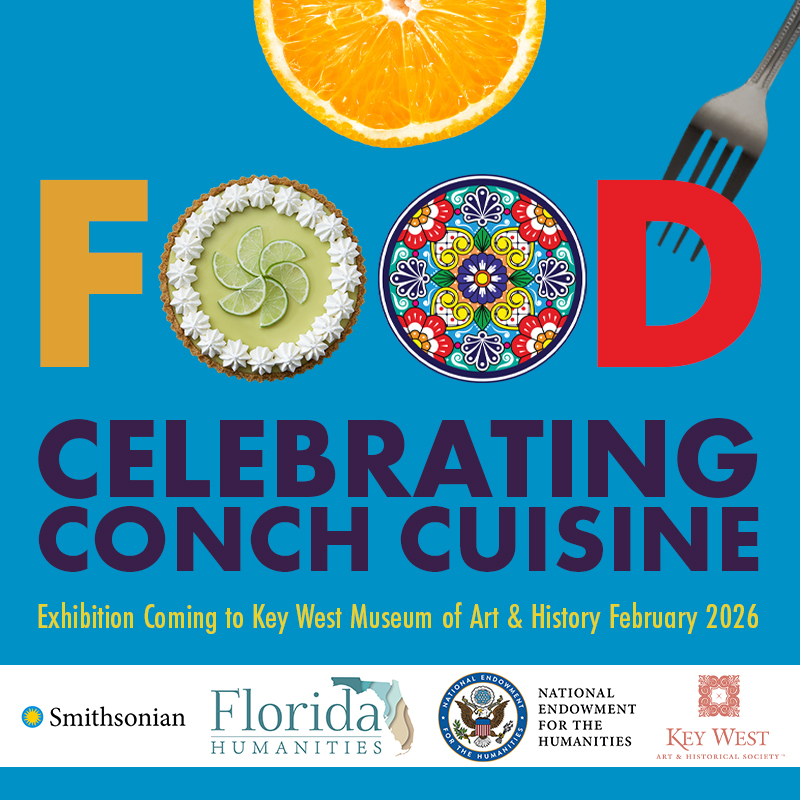FOOD: Celebrating Conch Cuisine
Exhibit Opening February 27, 2026
Key West Museum of Art & History
Building on the foundation of the original Smithsonian Food History exhibitions, which celebrate the powerful role food plays in shaping human culture, identity, and society, the Key West edition brings a regional focus to the story, diving deep into the culinary traditions of the Florida Keys. This special exhibit highlights the origins, evolution, and ongoing influence of Conch Cuisine, offering visitors an immersive look into how food has defined life in this unique island chain.
Developed in collaboration with local historians and cultural experts, the exhibit explores how Indigenous knowledge systems, Afro-Caribbean heritage, Cuban and Bahamian migration, and maritime trade routes all contributed to the bold, resourceful, and flavorful food traditions of the Keys. From traditional seafood harvesting techniques to the invention of key lime pie and the rise of Cuban coffee stands, the exhibit traces how local foodways have responded to environmental, political, and economic change over time.
Through interactive displays, original artifacts, oral histories, and multimedia storytelling, visitors will explore how geography and isolation shaped ingredient accessibility, storage methods, and cooking innovations. They’ll also learn about the social and political dynamics behind the Keys’ fishing economy, food-related labor, and export industries, offering a fuller picture of how sustenance, survival, and celebration are intertwined.
The Key West exhibit serves as both a local lens and a broader reflection of the Smithsonian’s mission to connect food with identity, memory, and meaning. It invites guests to consider how what we eat tells a larger story, one of resilience, migration, adaptation, and belonging, especially in a place as historically rich and culturally diverse as the Florida Keys.


